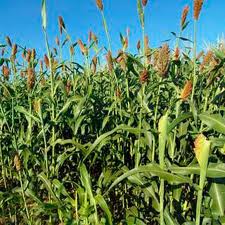Greening the Blue Report 2016
The United Nations emitted 2 million tonnes of carbon dioxide (CO2) equivalent in 2015, according to the organization's annual report of its greenhouse gas emissions. The latest edition of the Greening
The United Nations emitted 2 million tonnes of carbon dioxide (CO2) equivalent in 2015, according to the organization's annual report of its greenhouse gas emissions. The latest edition of the Greening
This UNEP report released in advance of the Durban Climate Change Conference indicates that cutting emissions by 2020 to a level that could keep global temperature rise under 2ºC is technologically and economically feasible.
This report addresses the mitigation of short-lived climate forcers (SLCFs) and its key role in air pollution reduction, climate protection and sustainable development. SLCFs are substances in the atmosphere
The UNEP has released a collection of capacity building success stories titled "Ready, Willing and Able: Empowering Countries to Meet the Climate Challenge." According to UNEP, the publication aims to
Scientific evidence and new analyses demonstrate that control of black carbon particles and tropospheric ozone through rapid implementation of proven emission reduction measures would have immediate and
The UNEP and the OECD have a released a report titled “Climate Change and Tourism Policy in OECD Countries,” which warns that unless resource-efficient policies are developed, greenhouse gas (GHG) emissions
Against the current challenges to enhance food security worldwide, the publication aims at illustrating the importance of healthy ecosystems for the provisioning of key services that contribute to food

This report finds that bioenergy’s water demands are in large part linked with the cultivation and processing of feedstocks, such as crops, which in turn have important implications for sustainable agriculture, land use and food production.
This practical guide for cities is highlighting how a focus on ecosystem services and their valuation can create direct benefits for urban areas and can be performed even with limited resources. The TEEB
Recognising healthy ecosystems as the basis for sustainable water resources and stable food security can help produce more food from each unit of agricultural land, improve resilience to climate change
This publication provides step-by-step guidance on how governments and other national actors can mainstream climate change adaptation into national development planning as part of their broader efforts.